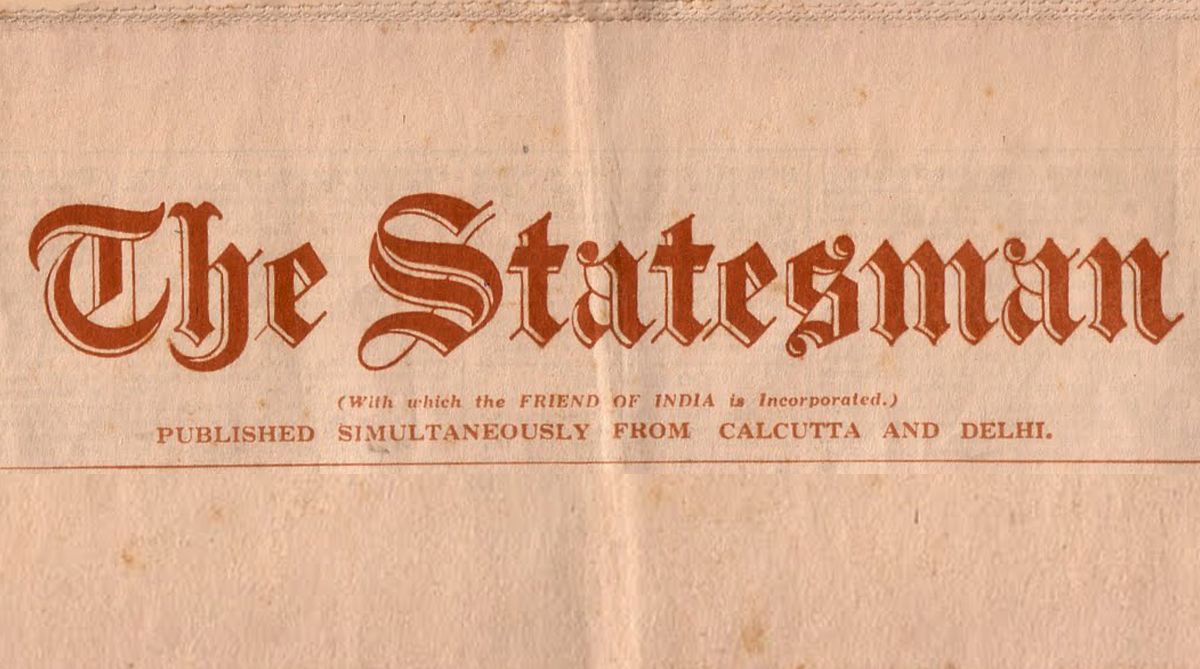A HAPPY JOURNEY
This evening it was about honoring those who made it possible for the oldest English daily to host its most prized annual celebration of heritage, the Vintage Car Rally, which enters its 53rd year this year.
On this day a century ago, these were some of the news items The Statesman readers got to read about India and the world.

OCCASIONAL NOTE
The violent death of the Bolshevik leader Obschinsky adds another to the rapidly accumulating body of facts which indicate that the Russian Terror is wearing itself out, and incidentally destroying its authors and instruments. Ulianoff, alias Trotzky, have been reduced to the same state of fearfulness as that manifested by Robespierre in the days preceding his fall, and the latest messages indicate that the counter-revolutionary movement is spreading with great rapidity across Russia from West to East.
The Russian Terrorists are even less favourably circumstanced than was the French Committee of Public Safety, for the latter commanded the unhesitating confidence and enthusiastic loyalty of the revolutionary armies and their leaders, while the Russian Terrorists are so doubtful of the support of the Russian forces that they have instructed their commissaries with the generals to shoot these officers out of hand should they manifest any signs of revolt.
Advertisement
One wonders what would happen to the adventurous commissary who went so far as to carry out this drastic direction! The Russian situation is, of course, more complicated than that in France a century and a third ago by reason of the network of German intrigue in which it is involved, but as it develops the Russians are not unlikely to free themselves by the rough and ready methods which have already been employed in the case of Mirbach, and in the long run the Germans will doubtless find the Russian complication reacting in a manner exceedingly awkward for themselves.
ASSAULT IN A TRAIN
Prafulla Kumar Bose, a clerk in the Eastern Bengal Railway Hospital Office at Sealdah, was travelling on the night of Saturday last in an inter-class carriage of the Khulna Mail from Sealdah to Khulna on office duty. He fell asleep in the train and when between Chingootia and Nowpara Stations he awoke to find a Bengali youth bending over him with a clasp knife in his hand.
Bose was cut about the throat, and before he could realise what had happened his assailant escaped through the window. The injured man pulled the alarm chain, the train was stopped but the man had escaped. Bose’s hand bag, which was lying by his side, and his purse, which was in his pocket, were untouched. His wounds were not serious. The Railway Police have the enquiry in hand.
WATER POWER OF THE EMPIRE
A conjoint board of British scientific societies reports that the potential water power of the Empire amounts in the aggregate to at least between fifty and seventy million horse-power, much of which is capable of immediate economic development.
They recommend that the Imperial Government bring before the Government of India and the Dominion and Crown Colony Governments the necessity for a close and systematic investigation of all reasonable promising water powers and their economic possibilities.
They also recommend that the Imperial Government take steps for the formation of an Imperial Water Power Board or Commission including representatives of all the Dominions and dependencies, to investigate and advise the Imperial Government regarding developments which it might assist or initiate.
GENERAL FOCH’S STRENGTH
The promise of further blows by General Foch was fulfilled more speedily than was anticipated by the enemy. General Humbert, whose swift successful rush equalled his magnificent advance on the opening day of the battle, showed how great was the strength of General Foch, who was able to embark on a third attack when two offensives were already in progress.
The battle hitherto has gone like clockwork and yet what has happened is probably only the first move in a great offensive which some experts anticipate may soon change the whole face of the war.
The fruits of victory have hitherto indeed been remarkable, severely shaking the whole enemy position. His heavy counter-attacks have been designed not merely to escape from the Montdidier pocket but to defend all the strong country of which Laon is the centre.
IN THE AIR
Regarding aviation Sir Douglas Haig reports: During the day and night of the 11th we dropped fifty tons of bombs, chiefly on the Somme crossings and certain railway junctions. We bombed Courtrai station and siding in daylight from a low altitude without loss, and many direct hits were observed.
We effectively attacked Peronne and Cambrai station at night. All of our night bombing machines returned. Enemy aircraft in large formations were active on the battle-front. We destroyed twenty-nine and drove down twenty-four. Five British machines are missing. Our anti-aircraft guns brought down a Gotha.
Advertisement